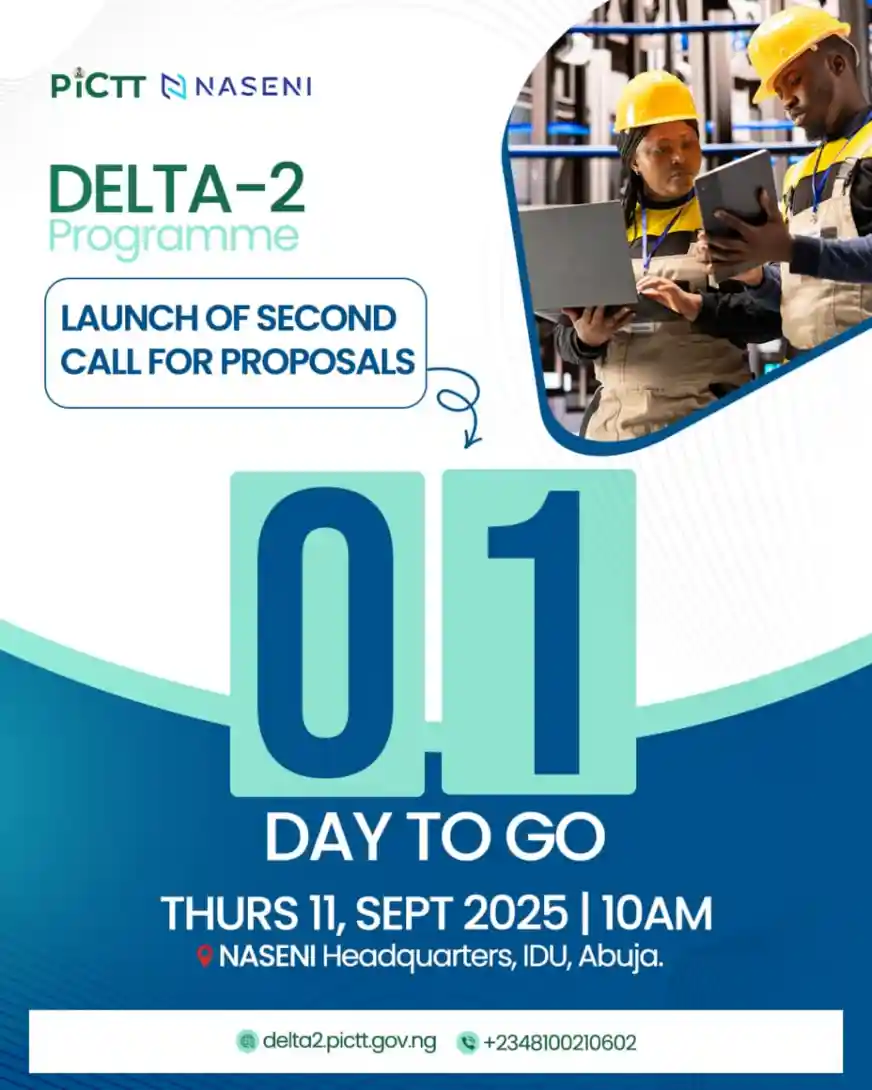The Federal Government of Nigeria has launched the second phase of the DELTA 2 programme, a joint initiative with the Czech Republic designed to accelerate technology transfer, innovation, and industrial growth. The programme is part of the government’s strategy to build an innovation-led economy and reduce dependence on imports.
Speaking at the inauguration ceremony on Thursday in Abuja, Uche Nnaji, the Minister of Innovation, Science and Technology, described DELTA 2 as a bold step toward Nigeria’s economic transformation. He said the future of global economies lies in science, technology, and innovation, adding that Nigeria must not be left behind.
Khalil Suleiman-Halilu, the Executive Vice-Chairman of the National Agency for Science and Engineering Infrastructure (NASENI), explained that DELTA 2 was designed to deliver applied research with real-world impact.
“This is not research for its own sake, but research with purpose, producing new knowledge, new products, and new skills that can bridge the gap between laboratories and the marketplace,” he stated.
Halilu also highlighted Nigeria’s growing digital economy, noting that ICT contributed nearly 20 percent of the nation’s GDP in the second quarter of 2024. He said Africa’s green economy was projected to create 3.3 million skilled jobs by 2030, showing that innovation could drive long-term prosperity.
Dr Muhammed Dahiru, Chairman of the Presidential Implementation Committee on Technology Transfer, announced that 10 of the 25 projects supported during the first phase had been completed and were now commercially available. He revealed that a documentary showcasing these achievements would soon be aired nationwide and said this success provided the momentum to launch the second phase with higher expectations.
The DELTA 2 programme is aligned with President Bola Tinubu’s Renewed Hope Agenda, focusing on food security, energy transition, job creation, and industrialisation. NASENI has also signed a Memorandum of Understanding with the Bureau of Public Procurement to promote the Nigeria First Policy, which gives preference to local innovations.
According to Halilu, empowering local innovators is essential. “We must expand the range of made-in-Nigeria products in the marketplace. DELTA 2 provides that platform for international collaboration and technology transfer,” he said.
Abike Dabiri-Erewa, Chairperson of the Nigerians in Diaspora Commission (NIDCOM), described the initiative as a chance for Nigerians abroad to contribute to national development. “Nigerians excel everywhere in the world, DELTA 2 creates the platform for them to bring home their knowledge and expertise, and I believe a dedicated diaspora version of the programme will soon emerge,” she stated.
Project Manager Togo Adjekughele announced that the call for proposals was open to researchers, entrepreneurs, engineers, and tertiary institutions. He explained that applicants must be registered with the Corporate Affairs Commission, comply with tax requirements, and show readiness to commercialise their innovations.
He added that priority areas include agriculture, renewable energy, aerospace, general manufacturing, and digital technology. “There is no age limit,” he said, “but ideas must be realistic, impactful, and achievable.”

